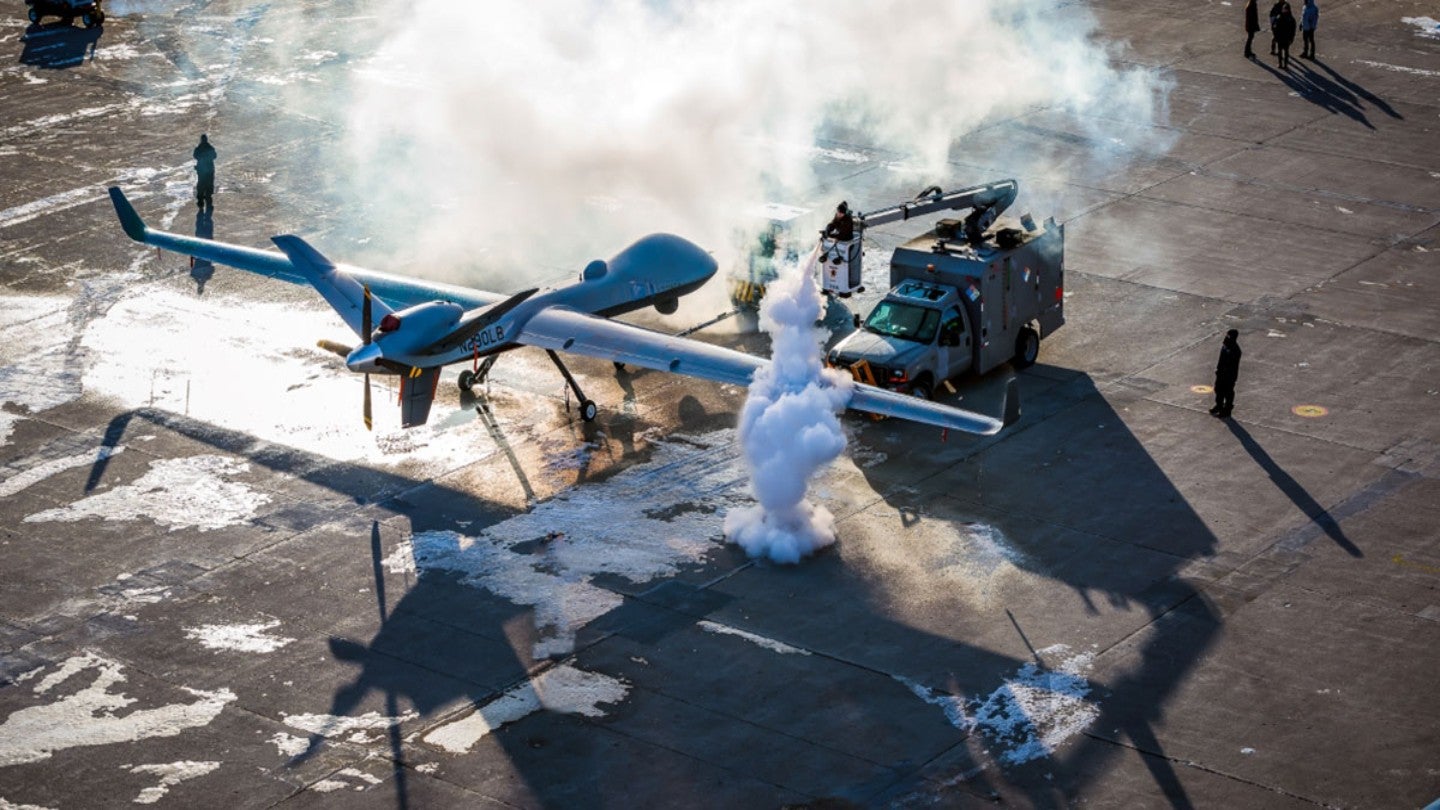
General Atomics Aeronautical Systems (GA-ASI) has successfully carried out a Cold Weather Validation (CWV) test with its MQ-9B SkyGuardian remotely piloted aircraft system (RPAS).
Conducted between late January and early February, the test aimed to prove the capability of the MQ-9 family of systems to operate in extreme cold weather conditions.
It further aimed to expand MQ-9’s global operational implementation, as the platform is being proposed for various Nordic countries to meet their defence and security requirements.
For the latest demonstration, the RPAS was kept in a ‘cold soak’, allowing the aircraft to maintain temperatures less than -21°C/-5°F for nearly 12 hours.
The system was then prepared for ground and flight manoeuvres by de-icing process, which involved the use of de-icing and anti-icing fluids.
Associated ground servicing work, manoeuvres and flight demonstrations were executed from GA-ASI’s Flight Test and Training Centre in Grand Forks, North Dakota.

US Tariffs are shifting - will you react or anticipate?
Don’t let policy changes catch you off guard. Stay proactive with real-time data and expert analysis.
By GlobalDataThe initial test was followed by a second scenario, under which the MQ-9B SkyGuardian aircraft was required to move from climate-controlled hangar space to basic cold conditions for performing engine start and system checks.
GA-ASI said that the outside temperature for the first flight was less than -21°C/-5°F.
The company claimed that all the tests were successfully completed relying on standard de-icing and anti-icing procedures, fluids as well as support equipment.
This further represents the responsiveness, performance and high readiness of the MQ-9B platform.
GA-ASI president David Alexander said: “Among many transformative features of our MQ-9B line of RPA is the aircraft’s ability to perform in extreme temperatures.
“We welcome cold weather operational capability requirements from Nordic countries, as MQ-9B is built for all-weather global missions, and we’re thrilled to have MQ-9B perform so impressively under these demanding cold conditions.”



